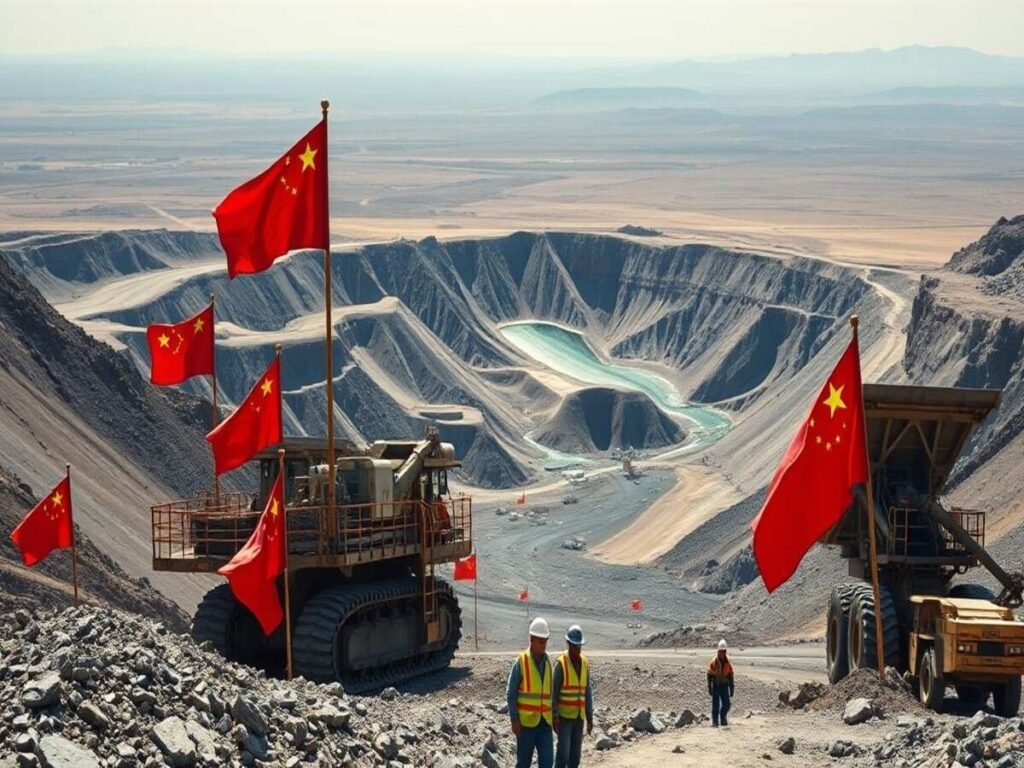SBI economists warn of disruption in production and exports amid rising reliance on critical imports from China
By Economy India | July 28, 2025
India is expected to face adverse impacts across five major industrial sectors due to China’s recent move to restrict exports of rare earth minerals, according to a new report released by economists at the State Bank of India (SBI). The restriction is likely to disrupt both domestic manufacturing and outbound trade for India, underscoring the country’s growing dependence on Chinese supplies.
China’s Ban and Its Ripple Effect on Indian Industries
The SBI report, released on Monday, highlights that China’s curbs on the export of critical rare earth elements and magnetic compounds will directly affect India’s domestic supply chains. These rare minerals are essential components in high-tech manufacturing, clean energy technologies, electronics, and defense production.
According to the report, India imported approximately $3.19 million worth of rare earth minerals and compounds, and around $2.91 million worth of magnets during FY 2024-25. These imports are vital for several strategic and economic sectors.

Five Sectors at Risk
The SBI economists identified five sectors that are likely to bear the brunt of the ban:
- Electronics & Semiconductors – Used in chip manufacturing, sensors, and data storage.
- Electric Vehicles (EVs) – Rare earth magnets are essential for EV motors.
- Defense & Aerospace – Advanced weapon systems and navigation tools rely on high-performance magnets and rare elements.
- Renewable Energy – Especially in wind turbine generators and solar panel manufacturing.
- Telecommunications – Key components in 5G infrastructure and network hardware.
Strategic Concerns Over Import Dependence
The report underscores India’s strategic vulnerability due to high import dependence on China for rare earths—resources that are critical to future technologies and industrial competitiveness. China currently controls over 80% of the global rare earth supply chain.
“India must prioritize building domestic processing capabilities and diversify its import sources,” the report notes, emphasizing the importance of government-industry collaboration and accelerated investment in exploration and refining of rare earth deposits within the country.
Geopolitical Overtones
The ban is being viewed in the larger context of geopolitical tensions and trade weaponization. Experts warn that any escalation between China and its trading partners, including India, could lead to broader supply shocks in the global tech and energy markets.
India’s Policy Push for Rare Earth Independence
In response to global supply chain risks, the Indian government has already launched initiatives to boost rare earth exploration and encourage private-sector participation through reforms in the Mines and Minerals (Development and Regulation) Act.
Moreover, India is in talks with countries like Australia, Vietnam, and the U.S. for critical mineral cooperation agreements.
The SBI report serves as a cautionary signal to Indian policymakers and businesses about the strategic imperative to reduce dependency on China for rare minerals. Without swift action, sectors key to India’s economic and security future may face prolonged disruptions.
(Economy India)















